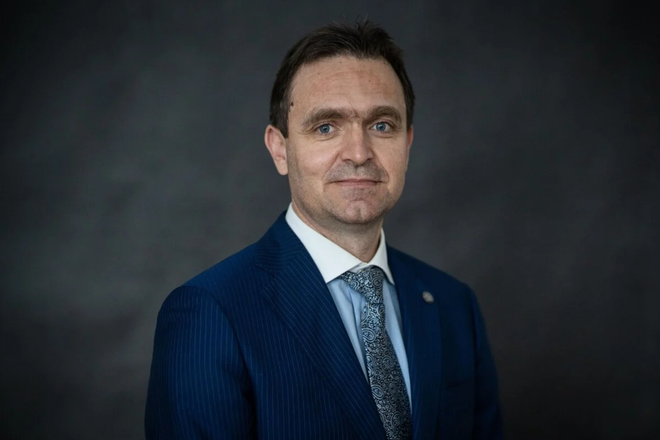President Zuzana Čaputová is going to appoint a government of experts to be headed by current deputy governor of the National Bank of Slovakia (NBS), Ľudovít Ódor.
For most Slovaks, the next prime minister is a relatively unknown figure, but in economic circles he is considered a highly-capable official and an expert in his field. From his beginnings in public administration, he emphasised analysis, data and facts. He had the ambition of bringing a more substantive debate to key areas, from education to the sustainability of the pension system, and steps towards catching up with the West.
His CV shows that he participated in important reforms, the significance of which no one can explain better to the average Slovak than him. A Most-Híd party nominee, Ódor has been the NBS deputy governor since 2018.
He claims that at work he always tries to separate the professional from the personal, so he has had no problem cooperating with politicians from both political camps - whether it was former SDKÚ finance minister Ivan Mikloš, or his current boss and NBS governor, Peter Kažimír (formerly Smer).
He is the co-author of the flat tax, participated in the pension reform, the introduction of the euro, the creation of budget rules, and was behind the establishment of the Value for Money project, the subject of criticism in recent weeks for allegedly slowing down the construction of highways.

Flat tax for the European tiger economy
Ódor started working in the public sector between 2003 and 2005, when Mikloš was the finance minister. He worked as his advisor and also managed the newly founded Institute of Financial Policy at the Finance Ministry for three years. It was the most successful period in Ódor's CV, which put Slovakia on the path to becoming a European tiger economy.
Mikuláš Dzurinda's (SDKÚ) second government launched a tax reform in 2004. The unification of tax rates to 19 percent (the so-called flat tax) for both natural and legal persons was included. The reform made Slovakia more attractive in the eyes of foreign investors, and Ódor was its co-author.


 Ľudovít Ódor. (source: SME - Jozef Jakubčo)
Ľudovít Ódor. (source: SME - Jozef Jakubčo)